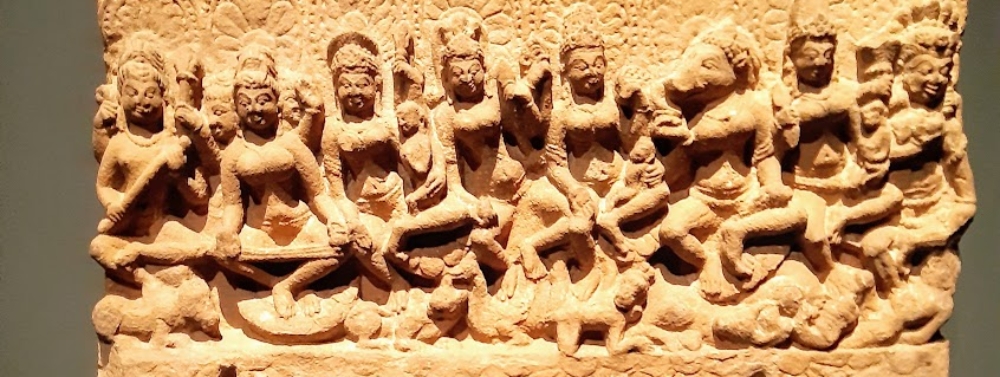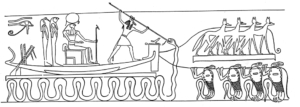“The gods of Egypt can be terrifying, dangerous and unpredictable, but they cannot be evil. Originally this was true even of Seth, the murderer of Osiris. Battle, constant confrontation, confusion, and questioning of the established order, in all of which Seth engages as a sort of ‘trickster’; are all necessary features of the existent world and of the limited disorder that is essential to a living order. But the gods and people must ensure that disorder does not come to overpower justice and order; this is the meaning of their common obligation towards Maat.” (Hornung 1982 : 213)
“Originally this was said, even of Seth” … says Hornung, acknowledging that only in the late period was Seth demonized and sometimes viewed as the equivalent of Apophis.
There are three main contexts said to be evidence of Seth’s evil nature. There are far more examples, outside of these, including medicine, where Seth is upholding order against decay but the three we must consider are:
- The Murder of Osiris
- His Sexuality, principally his Homosexual side.
- The idea that evil came into existence with his birth, bursting forth from the womb of his mother Nwt.
Disposing of points two and three first. It is debatable whether even in ancient times, homosexuality was seen as an evil practice that threatened the cosmic order of things. In our own times, such a view is entirely untenable.
Secondly then is this famous birth of Seth on the third of the epagomenal or liminal day in the Egyptian calendar. Five gods were born in this order, Osiris, Horus, Seth (all male) followed by Isis and Nephthys. If the birth of Seth on day three is disruptive then why not equally so Osiris who starts the process on the first day? Although Plutarch is responsible for this interpretation it is not really sanctified by Egyptian magical texts themselves. Eg Seth birthday is said
“ third: the birth of seth. words to be said on it:
oh, seth, Son of Nwt, great of strength, save me from bad and evil things and from any slaughter, protection is in thy, the hands of thy holiness. I am the offspring of your offspring.
the name of the day : It is powerful of heart. ”
These words, which round off an almanac of lucky and unlucky days is similar in tone to that for his five siblings, and doesn’t mention anything other than Seth’s protection against the bad vibe of all these liminal days.
So that brings us to the main issue of his murder of Osiris. Noting that in some sources it is Shu rather than Seth, who kills Osiris and brings him back to life. But even here we might argue that Seth’s role as challenger of Osiris is a necessary, realistic and inevitable part of the ruthless nature the “race for power”.
“… one may venture in seeing Seth as someone who challenges the authority of the establishment, the status quo, social conventions, etc. He may represent a principle through which society keeps itself open to criticism and challenges, so as to amend or prune itself, and also enables itself to integrate or tolerate a certain level of disorder; and this is not a bad thing. He may also represent a reason why … the establishment have to undergo a continual process of self-legitimization, purification and reinvention. … to quote Te Velde ‘the pharaoh is a Horus reconciled to Seth or a gentleman in whom the spirit of disorder has been integrated’ “ (Kembole 2010 : 244)
For all these reasons, Seth does uphold Maat, and so do his companions.
(From imaginal constitution of Companions of Seth Mystical Society)

